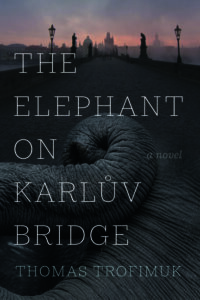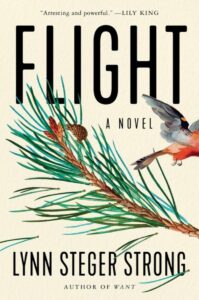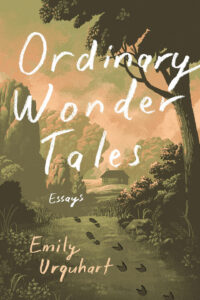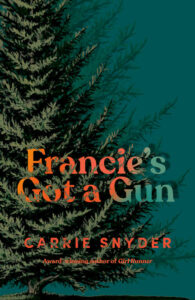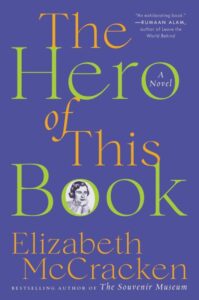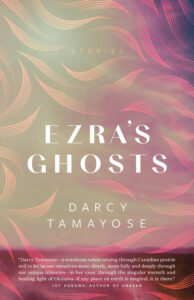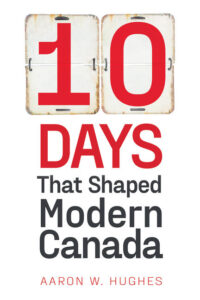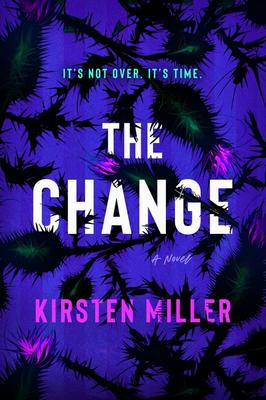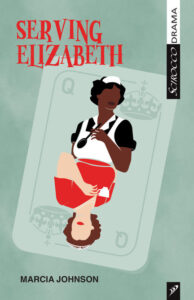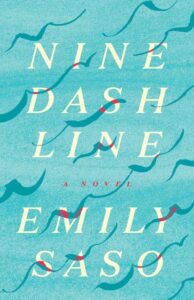December 5, 2022
The Elephant on Karluv Bridge, by Thomas Trofimuk
“The elephant came, as I predicted, Really, in the span of more than six hundred years, an elephant was inevitable.”
A novel about an elephant escaped from the Prague Zoo, narrated by centuries-old bridge?
I wanted to read it, and purchased a copy in the summer that I’ve now scrambled to fit into my 2022 reads, and I’m so glad I did, because I loved it. Thoughtful, artful, playful (a note on an opening page reads, “Any resemblance to actual elephants, living or dead, is entirely deliberate), Thomas Trofimuk’s latest novel, The Elephant on Karluv Bridge, is an absorbing literary puzzle and truly a delight to encounter.
Sál, the elephant, escapes from the zoo, and The Bridge saw it coming, but of course, The Bridge has seen a lot already in six centuries. Everyone else on the streets of Prague, however, is caught unaware, including the zoo’s night watchman whose psychologist wife has decided she wants to have a baby, and an American recovering-alcoholic whose isolated life attending a lighthouse on a Scottish island is interrupted by her father taking ill in Prague and necessity that she rush to his bedside, her taxi colliding with a street performer with whom she finds immediate connection; an aging ballerina haunted by the ghostly presence of Anna Pavlova; the conductor whose choir is due to perform early morning on the bridge from which Wolfgang Amadeus Mozart peed into the river in April 1792, and whose lead soprano is keeping a secret; and a bodyguard with PTSD. All of these lives intersecting in ways that are both remarkable and otherwise, these intersections woven with the story of the elephant herself who carries memories of her early life in Zambia and the moments that brought her across continents and into captivity.
November 30, 2022
Flight, by Lynn Steger Strong
“What were the rules for loving people who were not obliged to love you? How did you know when and how to trust they wouldn’t destroy you too?”
Readers who were drawn to Lynn Steger Strong’s articulation of parenting and family life amidst an age of anxiety in her previous novel Want will find the same frantic tension in her follow-up Flight, but with an expanded canvas exploring the psyches of eight different people, including three siblings celebrating their first Christmas since their mother’s death, their respective spouses, and a local woman and her daughter in the rural town where they’re all spending the holiday with the looming question of what to do with their mother’s house hanging over their heads.
And oh yes, anxiety abounds, including financial anxiety, and parenting anxiety, and climate anxiety, and the existential drama of trying to be in the world when the one person who’d held that world and all its meaning together…is gone.
The book resonated, and I devoured it, the plot taut and so compelling as the siblings come together in a moment of extra-family crisis, but I also read it with great interst in and respect for its crafting, for the cumulative depths of so many different points of view, for how so many parts culminate in such a rich and satisfying whole.
Of course, there’s obligatory bitchiness and bad behaviour, all delicious and readable, inevitable when any family dynamic gets put under the microscope, but where Steger Strong really succeeds is in making her story more than that. Imagining something better, the possibility of warmth and connection persisting, of mutual understanding.
November 21, 2022
Ordinary Wonder Tales, by Emily Urquhart
‘I don’t think I just imagined her, the woman I was left alone with in the last few minutes before I was taken into surgery. I don’t know if she was a nurse, or some kind of technician, but she seemed terribly official, sitting at a table with paperwork while I contemplated the IV needle stuck in my hand. “Section?” she asked me, and I told her yes. “What for?” I said, “The baby’s transverse.” Lying across my womb, its little bum wedged in at the top and refusing to budge no matter how much I stood on my head, played soothing music into my pelvis, or shone a flashlight into my vagina. “Well,” said the woman at the table, sorting through her papers. “Kids will screw you somehow. If it wasn’t that, it would be labour, then they’d grow up to be teenagers. They always find a way.” “But it’s all worth it, right?” I asked her. “No.” She put down her papers. “I don‘t think it is.” Then she got up, left through a different door, and I never saw her again.’ —from my 2010 essay LOVE IS A LET-DOWN, first published in The New Quarterly
“She was a witch,” I said to my husband on Friday night as I was reading Emily Urquhart’s essay collection Ordinary Wonder Tales. (Our baby from the essay is now actually a teenager and was out babysitting somebody else’s children down the street.) “The woman from the hospital who told me that kids always screw you. You remember.”
And he did. Even though he hadn’t been there when it happened, had already been whisked away to get read for the surgery that would deliver our first child into the world, even though these were throwaway comments that someone had made almost fourteen years ago now, but those commets had haunted us, especially in those difficult months after her birth when I was afflicted with what I now know was postpartum depression, and they’d felt like a curse.
“If that was a story, she would have been a witch,” I said, Urquhart’s stories blowing my mind with their illumination of the links between ordinary and extraordinary, how the otherworldly lessons of fairy tales (or “wonder tales”) have much to teach us about our own experiences. Experiences including pregnancy, parenthood and living through a pandemic underlining that we’re all more connected to these stories than we might have imagined, to all that came before us, to superstition, signs and omens, and folklore. We’re all old wives, at heart, is what Urquhart is saying.
Urquhart, whose academic background in folklore informed her first book Beyond the Pale (she is also author of a celebrated book inspired by her artist-father), brings that same approach to these beautiful essays exploring the sublime edge of ordinary experiences including an ectopic pregnancy, childhood memories of a ghostly presence, sightings of her elder half-brother after his death in his 30s, a violent assault delineating the dynamic of woman as prey, an amniocentesis in an essay called “Child Unwittingly Promised,” a radioactive house in Port Hope, Ontario, and her father’s dementia against the backdrop of the Covid-19 Pandemic.
These essays—beautiful, rich and absorbing-will change the way you see your place in the world, and they’ll leave you noticing all the magic at its fringes.
November 17, 2022
Francie’s Got a Gun, by Carrie Snyder
I loved Francie’s Got a Gun, a new novel by Carrie Snyder, whose Juliet Stories was a finalist for the Governor General’s Awards in 2012, and whose debut, Hair Hat, was part of a Canada Reads spin-off I ran in 2010. (Her third book, Girl Runner, was a finalist for the Writers Trust Fiction Prize.) It’s a taut, tension-filled story of a young girl who’s running with a gun in her hand, the question of “where did she come from” taking precedent over “where is she going?” because maybe the ending it inevitable. But is it? The story moving between Francie on the run and the story of what led to the events that sent her running, this latter told through a variety of voices—Francie’s family, her teacher, friends—and it’s a story of community, and responsibility, and how we do and don’t belong to each other, how we stand by and/or fail each other, and these voices weave a gorgeous tapestry of life and heart, a treatise on story itself. How one thing leads to another, for want of a nail the shoe was lost, etc. I started reading this book and found it hard to put it down, but refrained from posting about it until I’d reached the very end, so I’d be able to tell you with certainty that Carrie Snyder has pulled off, with flawless execution, a rich and sprawling story, and she really, really has.
November 12, 2022
The Hero of This Book, by Elizabeth McCracken
Elizabeth McCracken is one of my favourite authors, one of those whose new releases are always a must-purchase. Ever since Thunderstruck and Other Stories, which I read in 2014, I’ve been dazzled by the wonderful strangeness of McCracken’s perspective; in The Hero of This Book, her narrator writes, “I have no interest in ordinary people, having met so few of them in my life.”
The narrator of The Hero of the This Book is not McCracken herself, for this book is not a memoir—and its narrator is just as sure that she is no memoirist (whereas McCracken herself has published a memoir before). The book cannot be a memoir because McCracken had always promised her mother that she’d never appear as a character in her work, never mind that McCracken’s mother would make a remarkable character if she did, and that the eponymous hero of McCracken’s novel (a slim book made up of reflections and memories, ideas about writing and storytelling, and episodes from a trip the narrator takes to London in 2019 in the wake of her mother’s death) bears a resemblance to such a character. “Everything makes more sense if you know what my parents looked like,” a section of this book begins, the narrator’s enormous father countered by his wife who was less than five feet tall, was disabled and walked with canes. “She was a Jewish girl of Eastern European descent, born in a small town near Des Moines, Iowa, the older of twin girls. She always loved what made her statistically unusual.”
It’s the most peculiar, extraordinary love story, an ode to a mother who never said “I love you,” because she didn’t have to. A woman fiercely protective of her own self, her own story, and who would—her daughter is sure—be affronted by being put in a book. But here she is, but it’s fiction, or is it, but it doesn’t matter. Like everything McCracken writes, it’s weird, rich and wonderful.
November 4, 2022
Ezra’s Ghosts, by Darcy Tamayose
It took me this long to pick up Darcy Tamayose’s Ezra’s Ghosts because of the line in an otherwise rave review in Publisher’s Weekly that said, “Tamayose’s experimental story structures and tight focus on academia make for a collection that will likely put off casual readers.” I thought this book was going to be difficult, but it wasn’t. It was interesting, and richly intelligent, and strange and surprising, but it was also gripping, and full of suspense. I read it as part of the Turning the Page on Cancer readathon last weekend, and it was just the best pick, pages flying by.
The eponymous Ezra is a Canadian prairie city, the book comprising four different stories set around there. In the first, the shortest, an academic returns from a research trip to China—his focus is on the Ryukyu Islands, where Okinawa is located—in early 2020, and finds his pregnant partner acting strangely aloof. The second story is about another academic, a professor, who finds herself in the afterlife following her murder in which the wrong person is put away for the crime, the murderer goes unpunished, and her family members steep in their despair. In the third story, on an isolated farmstead, a grieving journalist encounters a man, an immigrant from Japan in the early 1900s, who, at 130 years, claims to be the oldest person in the world, all the while dead birds are falling down from the sky in curious weather. And finally, in the last story, we’re taken more than 20 years into the future as the partner of the academic in the first story visits Paris against a backdrop of violence and chaos to which she’s become somewhat inured.
For someone who doesn’t know who Derrida is, I loved this book an awful lot, finding it gripping, pulsing. I loved its insistence on mutability, on the arbitrariness of borders, the Japanese-Canadian writer raised on the Prairies can write about an Island chain in the East China Sea, about ghosts, about missing and murdered Indigenous women, and blend critical theory with elements of murder mystery.
Ezra’s Ghosts was terrific and not a chore at all.
November 2, 2022
10 Days That Shaped Modern Canada, Aaron W. Hughes
Reading 10 Days That Shaped Modern Canada, it occurred to me that too many of us take for granted what a huge and ambitious project Canada is (and society at all, for that matter). I never properly knew what the stakes were as I lived through many of the historic moments Hughes documents in this accessible, engaging book, though this is usually the way with history, and also I was too young to properly understand—the 1995 Quebec Referendum, for example. It’s stunning to read Hughes’ chapter on that now in light of Brexit and the disasters it’s brought and to think that could have happened here, how perilous is our arrangement of French and English cultures, to the exclusion of the Indigenous peoples who were here from the start, not to mention the immigrant groups who’ve settled in Canada over the years, becoming part of Canada’s cultural fabric. I never knew that Canada’s multiculturalism act was inspired by groups such as Ukrainian-Canadians who felt Canada’s endless focus on French/English relations was unfair to other cultural groups. I never knew what the Meech Lake Accord was at all. Or that the real story of the 1972 Summit hockey series was not as heroic as we’ve been taught it was (and I hadn’t thought about Igor Gouzenko in years!). How Pierre Trudeau’s “Just watch me” relates to this year’s “freedom” convoy, and how the 1989 Ecole Polytechnique murders changed conversations about violence against women and gun control, and how—no matter what political party was in power‚ the project of federalism was such a challenging one, different means toward the very same ends, tension and conflict baked right into the recipe.
I loved this book, its breadth and thoughtfulness, the way that Hughes made politics and legal history understandable, and how the pop culture references were just as resonant and interesting. I also appreciate how the book is no definitive, but instead the beginning of a conversation about where we are and how we got here. I learned so much, and definitely recommend it.
PS If you’re my dad, you’re getting a signed copy for Christmas.
October 28, 2022
The Change, by Kirsten Miller
I bought Kirsten Miller’s The Change after reading a review in The Guardian, which coined a new literary genre called “hot flush noir,” and I’ve got to tell you that I’ve been burned before by enticing-sounding thrillers with gorgeous covers like this one and in the end it all fell flat. But The Change was fantastic, as tangled and sprawling as the vines that have taken shape ever since Harriett Osborne got divorced and let herself go, but just as powerful and under control.
This is a witchy story of three women who reach menopause and realize they’re now in possession of formidable powers. Former ad-exec Harriett is a full-on witch, with tinctures and potions, and no fucks left to give about what anybody thinks of her. Mess with her, and you’ll like end up with some invasive hogweed on your lawn.
She in joined by Jo, who has left her job in hotel management to run a gym where menopausal women can work out their fury, the heat from her flashes leaving any men who dares to touch her with blistering burn, and by Nessa, a retired nurse, who has inherited a gift from her grandmother of being able to see and hear ghosts of dead women who are lost and can’t find their way home.
When they come upon a body wrapped in a garbage bag near the shore in their homes in Mattauk, NY, they have reason to believe that more bodies are out there, and a serial killer may be on the lose. When the usual channels of justice fail to get results, these three women decide to take matters into their own vengeful hands.
I loved this book! Smart, brutal, and engrossing, it’s a story that—like the truth—might set you free, but first—in the words of Gloria Steinem—it’s going really to piss you off.
October 27, 2022
Serving Elizabeth, by Marcia Johnson
Serving Elizabeth is a play by Marcia Johnson, which I bought after seeking Canadian stories about the Queen following her death last month, and it turned out to be even better than I was hoping, a really interesting complement to The Gown, by Jennifer Robson, both stories imagining the lives of the working class people behind iconic moments in the history of the royal family.
Inspired by the episode of The Crown set in Kenya, in which not a single Black actor had a speaking role, Johnson’s play tells the story of two women who cook for and serve the then-Princess Elizabeth on that pivotal tour during which Elizabeth’s father dies, she becomes Queen, and her life is transformed forever.
Mercy is working hard to run her restaurant to pay for care for her ailing husband, butting heads with her forthright daughter Faith who longs to leave her family and study at university. When the women receive the opportunity to work serving the royal couple on their tour, Mercy refuses, but Faith forges her signature on the contract.
Meanwhile in London on the eve of Brexit, Tia, a Black Canadian film student interning in an English production, learns that her own romantic ideas about the British monarchy might be more complicated than she thinks, this story line and the other woven together cleverly to become a meditation on colonialism, representation, and British history, a big picture view that made me feel as excited as I did when I encountered my favourite play—Tom Stoppard’s Arcadia—for the very first time.
October 17, 2022
Nine Dash Line, by Emily Saso
The most fascinating, original, well crafted novel I’ve read in a long time is Nine Dash Line, by Emily Saso, a novel whose premise—I will admit—didn’t grab me immediately, because it’s about a guy who’s stranded alone on an atoll in the South China sea, exiled by the Chinese communist government. All the things I tend to like best about novels are impossible in novels about people stranded in the middle of the sea—family drama, elaborate dinner scenes, bookshop settings, etc.—even if the guy on a atoll shares parallel chapters with a female US Navy officer who—for reasons as convoluted as the first character’s exile—has found herself marooned in an inflatable life boat, the sea around her rife with sharks and mines, about to wash up aboard a rusted out vessel belonging to the Philippines.
So how is this author going to pull this one off, you might ask?
To which I’ll reply with one single word: MASTERFULLY.
The book itself, it grabbed me at once, because oh my gosh, this is such a good one, built on the kind of premise that has to be pitch perfect to work at all, but it really is. By the end of the first chapter, I was absolutely hooked, riveted, Saso’s plotting and prose casting an incredible spell that held to the final page, resulting in such a strange and expansive novel, a story of geopolitics, about espionage, war, and ideology, and pain, and longing, and the necessity of living by one’s wits to survive impossible situations, about the impossible becoming possible, for better and for worse.
I’ve got no THIS BOOK MEETS THAT BOOK comparison here, because I’ve never read another quite like this one, a book so deftly imagined that I’m in awe of Saso’s talent, mind-blown by the creative skills required to even begin to imagine a book like this, let alone the technique required to execute it.
All I can tell you is that you’ve got to read it.
